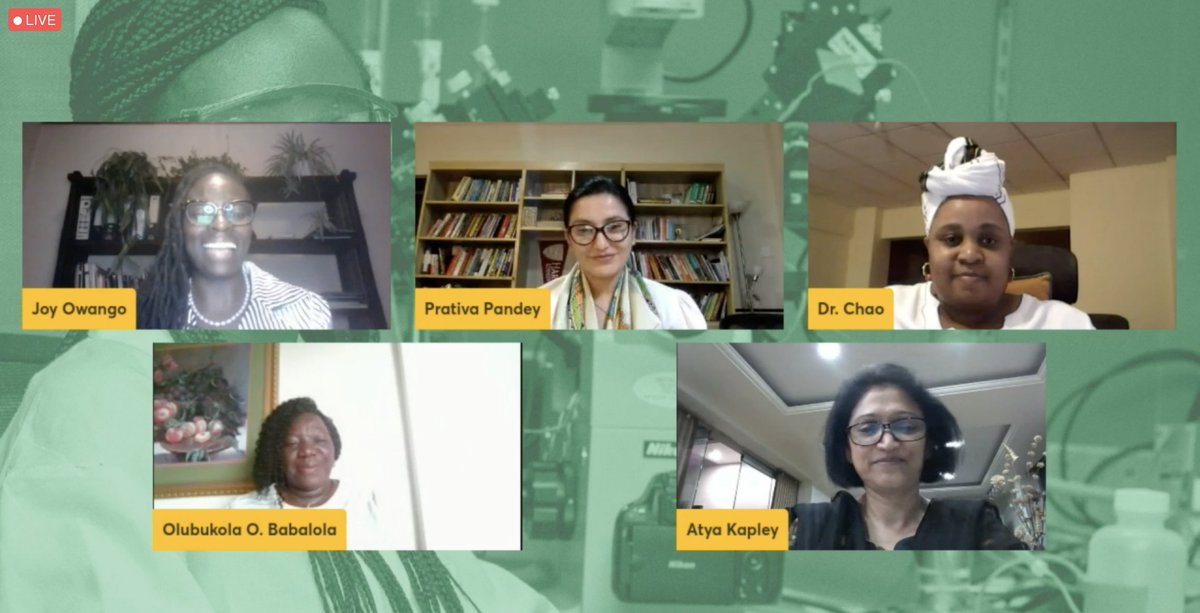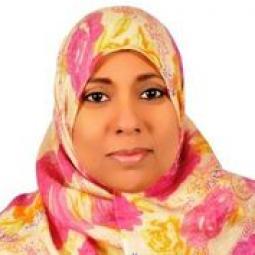OWSD General Assembly Day 4: World-renowned economist calls for global agrarian change
November 23, 2021
Agrarian economist Bina Agarwal has called on the world, particularly developing countries, to rethink farming methods. Speaking during a keynote address at OWSD’s virtual 6th General Assembly and International Conference on 11 November 2021, Agarwal said serious ecological problems are undermining farming as an economic activity. She advocated for group farming as an environmentally responsible, economically viable farming model.
Agarwal said, “Millions of farmers today face a crisis of non-viable farming and unfulfilled aspirations.” She said most of the world’s 570 million or more farmers are small and marginal. “Over 84% in 111 countries cultivate less than 2 hectares. They produce one third of the world’s food but face serious constraints and so produce far below their potential.”
In addition to this, Agarwal noted, smallholder farmers face ecological problems such as depleting water sources, degrading soil, declining biodiversity and accelerating climate change. Farmers face economic problems such as limited access to land and inputs, limited credit, and poor access to extension information, new technology and markets. Many operate within the institution of family farming, which she described as “fossilised”. The above-mentioned constraints have impacted yields of cereals, most severely in South Asia and Sub-Saharan Africa. Agarwal noted that the world is seeing an increasing feminisation of farming. Women are the most resource-constrained, especially given that very few women own the land they farm. As forests shrink, sources of common land, fodder and manure are also shrinking.
Agarwal said that while rainwater harvesting, groundwater regulations, and irrigation methods, as well as transmitting extension information on farming technology and inputs via farmers’ mobile phones were effective in increasing farming yields, the very small size of farming plots remains problematic. Indeed, Agarwal said, some of the above technologies could not be used on the “slivers” of land that farmers till.
Agarwal recommended group farming, a model where farmers who know and trust one another and who are economically homogenous, align themselves voluntarily to pool land, labour, costs, resources and profits (or losses). Distinguishing group farming from collectivisation and cooperative farming, Agarwal said group farming has the potential to make a positive and lasting impact on farming. She listed the benefits of group farming:
-
Smallholder farmers could cultivate larger plots of land and take advantage of economies of scale
-
They could share labour
-
They would have better access to credit, inputs and technical information
-
They could benefit from a diversity of skills within the groups
-
They could have greater bargaining power with governments and market than they would as individuals.
-
They would have better adaption to climate change
-
Women would overcome social norms in terms of autonomy and mobility. Women farmers would gain recognition as farmers in their own right.
Agarwal cited her 12 years of research on group farming in Asia and Europe. She shared from the Kerala group farming project in Kerala, India, where there are 68,000 farming groups involving over 300,000 women farmers. In Kerala, the women lease land and obtain technical training and start-up grants from the government, as well as subsidised bank credit. Agarwal studied a sample of 69 all-women group farms and 181 individual farms managed by men in two districts in Kerala, seeking to find out whether group farms could outperform family farms economically.
Agarwal’s research found, broadly, that group farms did strikingly better than family farms. The groups did well when they farmed niche products on contract. Groups, she found, could deliver better on contracts than family farms. The net returns of the groups was 1.5 times higher per hectare than that of individual farms. The groups were able to earn more, developed strong identity as farmers, increased their knowledge of markets, economic and technical institutions. Many women applied what they learned in group farming in their family farms. They reported being respected in their families and communities. In fact, some were even standing in local elections in their village councils and winning. The group farms also survived the disruption of the COVID-19 pandemic far better than individual farms. Individual farms lost their produce due to loss of harvest labour and market access. Group farms in other parts of India also reported that they were more food secure during the lockdown than if they had farmed individually. She said the model was highly scalable; groups can come together to form federations. She added that the group model could also work for restoring forests and farmlands.
Bina Agarwal concluded her keynote address by saying:
“In rethinking the way we farm, I think we need to rethink how we produce, what we produce and the institutions within which we produce. We have an opportunity to tread an alternative path to agrarian change, one which is equitable and inclusive, ecologically sustainable and institutionally innovative and attractive to women and youth… Cooperation, community and conservation would be the three important principles on which to build this farming future to build back better. It will hopefully also lead to happier farmers.”
Bina Agarwal’s keynote address was followed by a conversation with Dorine Odongo, Head of Communications at African Women in Agricultural Research and Development (AWARD). Here Bina Agarwal reported on the group farming projects in other parts of India, such as Telangana, where group farming had been less successful. She said this was due to less state support, larger group size which reduced the per capita returns and made coordination more difficult, a narrower social base making it difficult to access leased land, and gender homogeneity. Telangana demonstrated the dos and don’ts of group farming. Other groups in India, in fact, used the lessons learned in Telangana.
During the conversation, Agarwal also commented on whether or not women groups outperformed farming groups run by men. She talked about how she came to work in economics, her career and her other intellectual interests. She also answered questions from the audience, particularly on how to make farming attractive to young people and how group farming can work in Africa where there is land fragmentation.
Live panel discussion
The keynote conversation was followed by a live panel session entitled: 'Changing Lives: Research that makes a difference'. The panel was made up by:
- Chao Mbogo, professor of Computer Science and Dean of the School of Science and Technology at the Kenyatta Methodist University, Founder and Lead of KamiLimu; 2020 OWSD-Elsevier Foundation award winner.
- Prativa Pandey, Research Fellow at Research Institute for Bioscience and Biotechnology, Nepal, Founder and CEO of Catalyst Technology; 2019 OWSD Early Career Fellow.
- Atya Kapley, Principal Scientist at the National Environmental Engineering Research Institute (CSIR-NEERI) Nagpur, India; OWSD Vice President for the Asia-Pacific region
- Olubukola Oluranti Babalola, Research Director and Food Security and Safety in the Department of Microbiology at North-West University, South Africa; OWSD Vice President for Africa, 2016-2021 and 2021-2025.
 The panel discussion was moderated by Joy Owango, Executive Director of the Training in Communication Centre (TCC Africa), University of Nairobi, Kenya.
The panel discussion was moderated by Joy Owango, Executive Director of the Training in Communication Centre (TCC Africa), University of Nairobi, Kenya.
Chao Mbogo explained why it was important for her not only to provide mentorship support to students in her KamiLimu structured mentorship programme, but also to systematically study the results: "We are constantly looking at, is it nurturing employability, is it nurturing innovation?...It is one thing to say you are a mentor, it is another to say, how do you know that you actually successfully mentored someone? Taking the time to really understand what are the metrics behind successful mentorship, and how do we continue structuring programmes that are very instrumental in enabling tech students to succeed?" The results of this research help Mbogo and her colleagues to refine their own approach, and contribute to the development of best practices in mentorship; they have published three papers on their findings to date.
Mbogo's other line of research is also focused on how to help students succeed. She is adapting mobile phones to be more effective devices for learners to develop computer programming skills in resource-constrained environments. "It is very important in enabling us to reach more learners who may not necessarily have their laptop, their PC, or who may have only shared resources so that they don't always have access to computers...it fosters development of coding skills for pretty much anyone with a mobile phone."
Prativa Pandey uses green extraction and fermentation techniques to take bioactive compounds from turn citrus waste in Nepal. As an entrepreneur who then uses the extracted compounds in value-added cosmetics products, Pandey immediately saw the long-reaching impact her work could have on developing countries: "I could see my research supporting not just the scientific community but also people at ground level, like farmers and farming cooperatives and fruit vendors." Her research can be applied not only to citrus waste but to other fruits, and in other countries like Nepal with geographic diversity and limited resources for transportation.
Atya Kapley is working on solutions to treat domestic wastewater for use in agriculture and industry, protecting contamination of freshwater resources. "Environmental management touches everybody's life," she reminded, underlining the fact that potable water is a scarce resource in many developing countries, including India.
Olukbukola Oluranti Babalola traces connections between soil microbes and the effects on plants above the ground, using this knowledge to develop biofertilizers that can be used in place of harmful chemical fertilizers. She emphasized that funding of agricultural research is essential for all countries to maintain food security, but can be especially impactful in the developing world: "In the developing countries, we depend on aid. But if we ourselves can do great research to solve this problem, some of those things that we are sending abroad in the form of food products or raw products, should we add value to them ourselves? They will give us more income."
The panel held a lively discussion covering such questions as, Is it useful to distinguish between basic science and advanced science? How can scientists contribute to innovation and industry in developing countries? What are the policy changes needed to bring science to society?
The full panel discussion can be watched on OWSD's YouTube channel here.











































